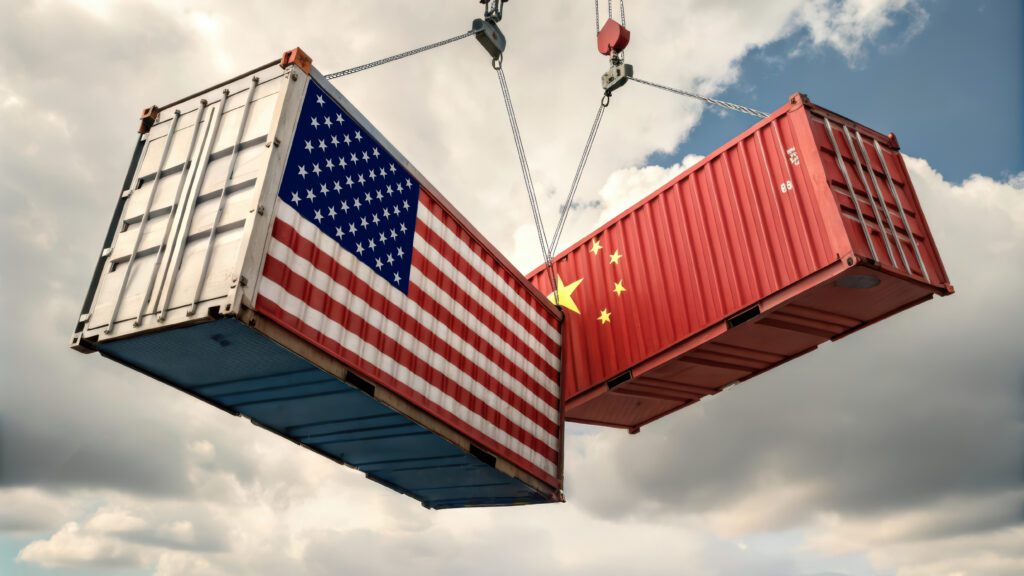Trump’s Tariff Tactics, Florida’s Coastal Migration Forecast, and the Florida Film Festival 📈 Monday Market Update #MMU | April 7, 2025
By Amy Calandrino, Beyond Commercial

This week’s update brings together three critical developments shaping the future of commercial real estate (CRE) across all levels:
🌍 Global trade talks may reshape supply chains and investment strategy
🏝️ Florida’s inland metros like Orlando could benefit from long-term climate shifts
🎬 The Florida Film Festival returns, bringing visibility, foot traffic, and local opportunity
Let’s unpack how these national, regional, and hyperlocal trends intersect with the commercial real estate landscape in Orlando and beyond.
🌍 National & Global Outlook: Trump Tariff Talks Heat Up — or Cool Down?
Tariff Negotiations Enter a Crucial Phase
On April 4, CNBC reported that ongoing Trump administration trade negotiations are starting to show signs of flexibility. The initial hardline stance on tariffs against China, Mexico, Vietnam, and others is softening in certain corners — a move reminiscent of previous business tactics used to apply pressure before finalizing deals.
Countries like Vietnam are returning to the table, signaling that de-escalation could be on the horizon. However, the situation remains fluid, with potential implications for everything from supply chain reliability to construction materials pricing.
🔍 What This Means for CRE
- Construction Costs: Tariffs on steel, aluminum, and manufactured goods could affect project timelines and budgets, particularly for developers and general contractors. A negotiation breakthrough would ease price volatility.
- Investor Sentiment: Global economic uncertainty tied to trade can cause capital to flow toward stable CRE markets, like Orlando, especially in industrial and logistics sectors.
- Tenant Risk Management: Businesses in trade-exposed industries may reevaluate expansion or relocation plans based on tariff updates. Flexibility in leasing and build-out terms can become a strong asset for landlords.
We’ll continue to monitor and report on this story as it evolves in future MMUs.
🏝️ Florida Spotlight: Coastal Flooding Forecast May Drive Migration Inland
2050 Sea Level Projections Raise Red Flags
A new Florida Realtors report highlights mounting risks for Florida’s coastal markets. By 2050, an estimated one million residential properties may be at risk from coastal flooding, with Miami-Dade, Lee, and Pinellas counties leading the list of vulnerable zones.
Though the timeline may seem distant, the impact on insurance, infrastructure, and long-term property values is already being felt — and it’s influencing where people choose to live and invest.
🧭 What This Means for Orlando
- Orlando is high and dry — Compared to coastal cities, Orlando’s elevation and distance from rising seas makes it increasingly attractive for intrastate migrants.
- Insurance incentives – Inland properties may benefit from lower insurance premiums and greater lender confidence, making CRE in Central Florida more competitive.
- Increased demand – As some coastal residents seek permanent or second homes inland, Orlando could see growth in both residential and supporting retail, office, and healthcare services.
For commercial property owners and investors, this reinforces the long-term value of holding or acquiring assets in less climate-exposed markets like Orlando, especially those near high-demand neighborhoods or transport corridors.
🎬 Hyperlocal Focus: Florida Film Festival Returns to Orlando
Culture Meets Commerce in 10 Days of Film and Events
From April 11–20, 2025, the 34th annual Florida Film Festival rolls out the red carpet across Orlando — showcasing over 160 films and hosting first-class events that bring in filmmakers, talent, industry professionals, and thousands of attendees. (FloridaFilmFestival.com)
The event is also Oscar-qualifying, meaning several featured short films are eligible for Academy Award consideration — boosting visibility and drawing national attention.
🎥 CRE Impacts of the Festival
- Hospitality Sector Surge – Expect an uptick in hotel bookings, restaurant traffic, and rideshare demand near venues like Enzian Theater and Winter Park.
- Retail and Foot Traffic – Pop-ups, panel discussions, and after-parties will activate commercial nodes, especially near Park Avenue, Ivanhoe Village, and Mills 50.
- Cultural Capital Matters – A thriving creative scene enhances Orlando’s talent retention and quality of life appeal, which ultimately feeds into office and coworking demand.
This is one of those moments when culture and commerce intersect beautifully — and it’s a signal that Orlando’s creative economy is worth watching (and investing in).
💡 Key Takeaways for CRE & Business Owners
✅ Tariff talks are heating up, but a negotiated outcome could stabilize construction pricing and long-term expansion planning.
✅ Orlando’s inland geography continues to look strong as coastal climate risks start impacting long-range investment and migration patterns.
✅ Events like the Florida Film Festival bring a buzz that fuels foot traffic, hospitality revenue, and the intangible benefits of cultural capital — which enhance long-term CRE value.
📩 Want to talk strategy? Whether you’re leasing, investing, or preparing your next project, these trends are shaping the real estate decisions of tomorrow.
